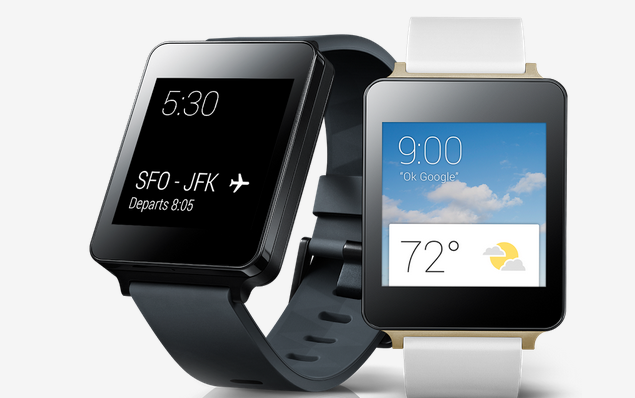Samsung Renews Relationship With Google, Android With Launch of Gear Live

Call them frenemies.
There are few relationships in tech both more symbiotic yet also fraught with tension than Google (NASDAQ: GOOG), maker of the Android mobile operating system, and Samsung Electronics Co., (KRX: 005930) maker of the world's most popular mobile devices.
The relationship can run hot and cold, but Samsung wants the world to know that with the introduction of its Gear Live smartwatch, that it's more committed to Google, and Android, than ever.
The smartphone maker shared a blog post about the Samsung Gear Fit Live on Monday, calling the smartwatch “another collaboration done right.” While the Gear Fit Live is not much different from its many predecessors -- such as the Galaxy Gear, the Gear 2 and the Gear 2 Neo -- by way of external design, one glaring difference between the devices is that the Gear Fit Live is a Samsung-manufactured vessel for Google’s Android operating system and the Android Wear collective of applications for wearables.
Previously, it appeared that Samsung was beginning to favor its own Tizen operating system over Android; the Gear 2 and the Gear 2 Neo launched in April 2014 running Tizen, and even its original Galaxy Gear smartwatch, which launched in September 2013 running Android, was made upgradable to Tizen. But Samsung has made a sharp turn back into Android territory, especially with Google insisting that manufacturers cease their extensive customization of Android with their own user interfaces.
Dave Burke, the head of Android engineering, recently told Dan Rowinski of ReadWrite that Google essentially developed its line of Nexus hardware as an explanation of how it thinks Android should run. However, various overlays such as Samsung’s TouchWiz and HTC’s Sense can make the Android operating system look nearly unrecognizable from its pure form. This especially happened with the Samsung Galaxy Note Pro and Galaxy Tab Pro tablets, which were unveiled at the 2014 International CES in January.
In addition, reports indicate that Google was not pleased with Samsung’s Magazine UX, which pushed Google apps and services in the background in favor for those developed by Samsung.
The Korean manufacturer agreed to refrain from excessive altering of the Android system as part of the cross-patent deal Samsung and Google signed in January, which has been seen as an olive branch on Samsung’s part.
“With many corporate relationships, commercial realities mean both will continue to work with each other on Android as they can’t afford not to,” Nick Spencer, senior practice director at ABI Research, told International Business Times last month.
As Google attempts to gain a majority influence over the smartphone market, many note the increasing congruency between Android-powered devices across many different brands. Google’s attempts to standardize Android has the potential to erase the very spirit of the Android culture, as a system with many options and many flavors.
Still, there is an open window. Many manufacturers that don’t want to deal with Google’s restrictions often take advantage of the fact that the Android operating system is open source and can be accessed by any developer without direction from Google. Many manufacturers have created their own forked versions of Android, which largely differentiate only in the fact that they do not run applications from the Google Play Store. We’ve seen Amazon.com (NASDAQ: AMZN) do this with its Fire OS, which runs on a number of Amazon Kindle Fire tablets and most recently the Amazon Fire Phone.
Even Samsung’s Tizen system, which is based on the same open-source Linux kernel as Android, could easily be mistaken for a forked version of Android. It looks like Android customized with Samsung’s TouchWiz user interface with the addition of Tizen-branded applications, which can be found at the Tizen app store.
While only Samsung is aware of its ultimate intentions with the Tizen operating system, it remains one of few manufacturers with enough clout to take on Google as a software proprietor. Google has even indicated that Tizen’s introduction to the market has put it on notice.
“I view Tizen as a choice which people can have,” Android head Sundar Pichai told the Wall Street Journal last month. “We need to make sure Android is the better choice.”
But customers should not expect Tizen to take over Samsung’s repertoire any time soon. Though the manufacturer is set to launch its first Tizen smartphone, the Samsung Z next week, the smartphone will primarily target foreign markets like Russia. There is no telling when, or if Tizen-operated smartphones would ever debut in larger markets like that U.S. Currently, rumors suggest that the Google Play Edition of Samsung’s Galaxy S5 flagship is close to releasing. Similar to the Gear Fit Live, the device is hardware manufactured by Samsung running the purest of the Android software.
© Copyright IBTimes 2024. All rights reserved.






















